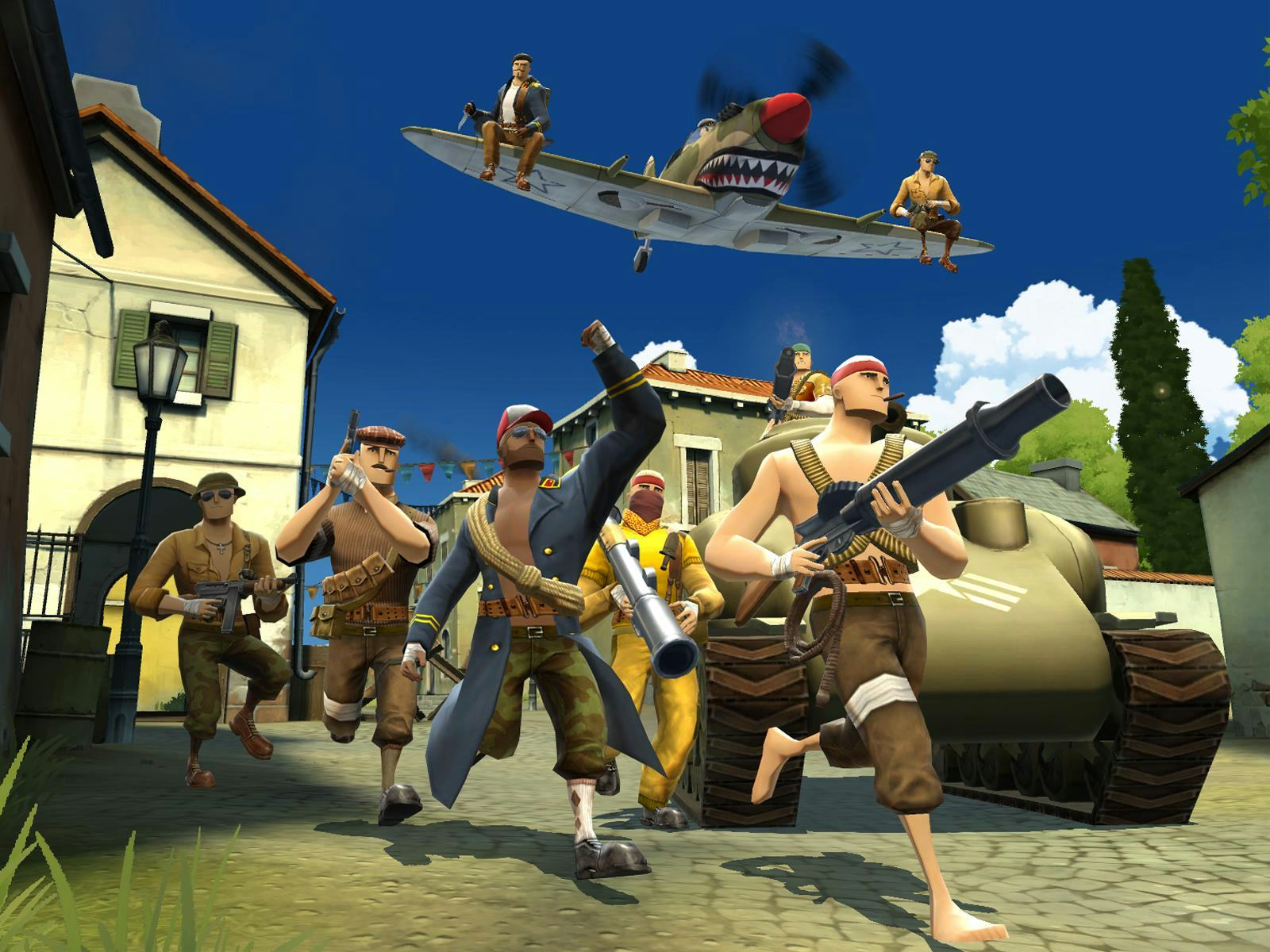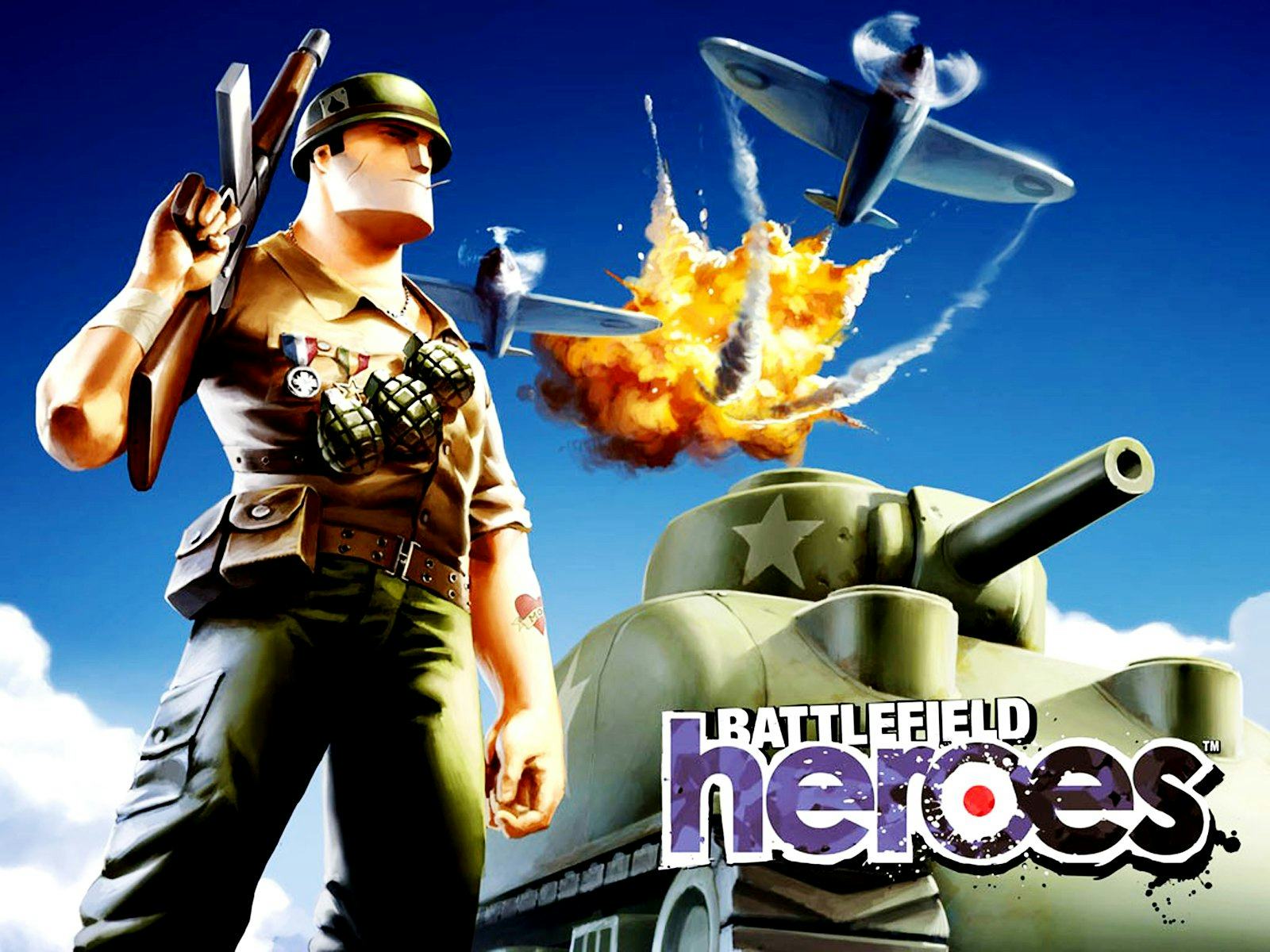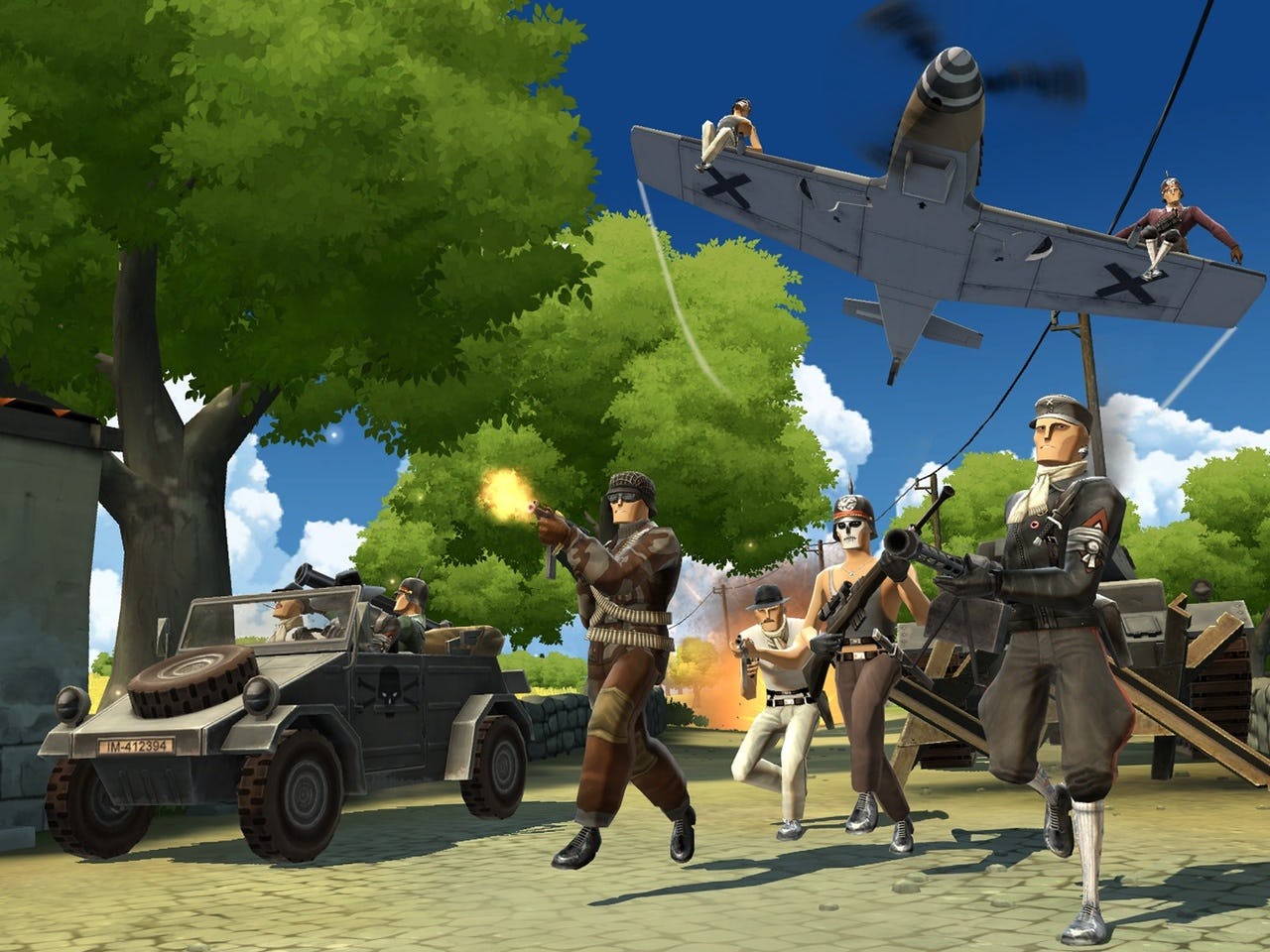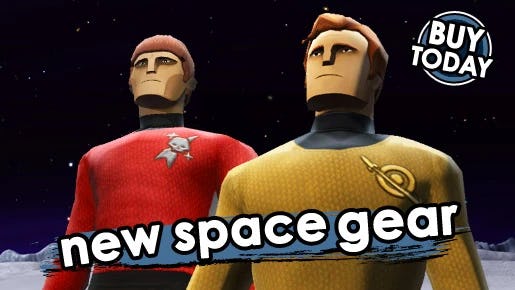
Long before free-to-play titles like Fortnite and Call Of Duty: Warzone dominated the video game market, Swedish developer DICE and publisher Electronic Arts tried their best to translate the squad-based multiplayer chaos that made the Battlefield series a bonafide hit into an approachable and entirely free PC game. In many ways, Battlefield Heroes was far ahead of its time, from trying out a free-to-play model to its wacky embrace of pop culture.
But while many of its innovations have been forgotten some 15 years after its initial launch, almost all of the game’s boldest ideas would actually become a template that many contemporary free games would follow to reach unprecedented success nearly a decade later.
For those unfamiliar with what Battlefield Heroes was, here’s the elevator pitch: the game took the core ideas of the franchise, tense team-based multiplayer across all terrains on large scale maps, and applied them to a more accessible, family-friendly game simple enough to be played in a web browser. The game ran on Battlefield 2142’s engine, retaining the wide variety of vehicles players could use, including jeeps, planes, and tanks, as well as the objective-based Conquest mode that the series was known for.

The game featured a cartoon aesthetic that was the most comparable to another popular multiplayer shooter at the time, Team Fortress 2. Heroes reworked the four iconic classes of the mainline game (Assault, Engineer, Recon, and Support) to just three, (the versatile Soldiers, the resilient Gunners, and the sneaky Commandos), asked players to side with one of two fictional factions, and featured two decent sized maps at launch. The most noteworthy feature, of course, was that it was completely free to jump into.
While EA had found success with the free-to-play model in Asia, where players were already used to gacha-style games by the mid-2000s, western audiences were mostly unfamiliar with the idea. Microtransactions were an entirely new concept for players who were still used to the traditional model of buying full-priced games with multiplayer modes included in the package. The idea of spending money on an outfit or new skin seemed alien to audiences that largely scoffed at the idea of buying horse armor and other in-game cosmetics.
Battlefield Heroes was also a major departure for reasons other than its unorthodox business model. It featured a third-person perspective, the only game in the series to not be first-person to this day. Matches were limited to just 8-versus-8, a big change from the 16-on-16 or 32-on-32 matches the series was known for on console and PC respectively. The limited number of maps also played a factor in retaining players' attention, as multiplayer games at the time were often judged by the variety of battlegrounds offered at launch.

For the thousands of players willing to look past these key differences, Battlefield Heroes unknowingly offered a glimpse into the future of multiplayer gaming. There are so many aspects of Battlefield Heroes that would become mainstays of the free-to-play games players can’t seem to put down.
With Battlefield Heroes discarding the biggest barrier to entry, its price, the game seemed more willing to take big risks that would have been seen as headscratchers. Weirdness thrived in Battlefield Heroes. Silly cosmetics that would have felt out of place as unlockables in the more serious Battlefield entries at the time were regularly on offer in Heroes. Michael Jackson, Issac Clarke from Dead Space, robots, aliens, and even Cthulhu all made appearances in Heroes in game shop. For the subset of players familiar with the Battlefield: Bad Company series on console, characters from that spin-off series were purchasable avatars.
Skins weren’t limited to crossovers with prominent EA Games and public domain monsters, and American icons. In an intelligent move by developer DICE, skins inspired by contemporary blockbusters and pop culture hits of the time were regularly added to the game. DICE may not have had the pull to do the officially licensed crossovers seen in Fortnite today, but it didn’t stop them from releasing skins clearly inspired by the warring families features on Game Of Thrones, Star Trek: The Original Series, and even the early MCU. These releases showed the true potential of how developers could benefit from being tapped into the zeitgeist.
This proto-metaverse approach to the free-to-play game even seeped through to the actual gameplay. In 2011, Battlefield Heroes brought the franchise to the one place that hadn’t been corrupted by capitalism: space. It was an absurd but fun twist on what the decent-sized player base had come to expect not only from the free-to-play spinoff, adding low gravity, unique vehicles, and laser-based weaponry. It wasn’t too dissimilar to how Fortnite and Rocket League would remix basic tenets of the game to introduce entirely new metas, keeping things fresh for players.
While reviews were okay at launch, Battlefield Heroes managed to find a decent audience. In its first six months, 3 million players had tried the experimental shooter. It had enough of an audience to earn five years worth of steady support. But by year six, Electronic Arts was ready to pull the plug on their big, free-to-play experiment. The publisher announced in April 2015 that it would no longer support Battlefield’s foray into free-to-play, just a few years before games like Fortnite would make the genre ubiquitous in the gaming landscape.

It’s bizarre to look at how ahead of the curb Battlefield Heroes was. The game had its fair share of issues, including questionable microtransactions that allowed players to rent better weapons. But these stumbles can be excused by the fact that it was one of the first games to get a feel for what players would be willing to put up with when it came to spending on a free game. It's also worth noting that nearly everything great and not-so-great about Battlefield Heroes are elements that have been replicated tenfold by today’s most popular games.
It’s tough to gauge if Battlefield Heroes would have found success had it come out half a decade after its launch. Or if it would have stood a chance of gaining an audience against juggernauts like Valorant, Fortnite, or even EA’s own Apex Legends. But there’s no denying how influential Battlefield’s least-remember was to the most successful titles in gaming’s current landscape.







